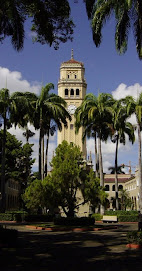This program area seeks to support proposals that that lead to a better understanding of the behavioral and environmental factors that influence obesity and to the development and evaluation of effective interventions to prevent obesity. Obesity is the number one nutritional problem in the U.S. Food is an integral part of the process that leads to obesity, and USDA has a unique responsibility for the food system in the U.S. Investigators who are beginning their research careers, do not have an extensive research publication record, and have less than five years post-graduate, career-track research experience, are eligible.
OBJECTIVES:
To meet the identified needs of agriculture, the long-term (10-year) goals for this program are that: the behavioral and environmental factors that influence obesity will be sufficiently well
understood to develop effective obesity prevention strategies; valid behavioral and environmental instruments for measuring progress in obesity prevention efforts will be available; and effective strategies for preventing overweight and obesity will be available. The ultimate goal of the program is to stem the rising tide of obesity. The milestones toward reaching these long-term goals include: theories on how behavioral and environmental factors influence obesity will be in development; testing will be underway on the validity of behavioral
and environmental measures for evaluating success in obesity prevention efforts; and testing will be underway on the effectiveness of strategies for preventing overweight and obesity.
FY 2007 Priorities for Integrated Activities:
1) Improve our understanding of the behavioral and community environment factors that influence obesity and use this new information to develop effective intervention strategies for
preventing obesity; and 2) Develop and implement behavioral and environmental instruments
to measure progress in obesity prevention efforts. Examples of potential study areas for factors influencing obesity are: social and psychological factors; the role of lifestyle; and the influence of
economic factors and agricultural and public policy issues. The sponsor is particularly interested in the role of the family in preventing childhood overweight.
FY 2007 Priorities for Research:
1) Improve our understanding of the behavioral and community environment factors that influence obesity. Examples of priority focus areas for research are the same as for integrated projects; and 2) Epidemiological studies related to these priorities may involve secondary analyses of large national databases.
Deadline(s): 06/05/2007
OBJECTIVES:
To meet the identified needs of agriculture, the long-term (10-year) goals for this program are that: the behavioral and environmental factors that influence obesity will be sufficiently well
understood to develop effective obesity prevention strategies; valid behavioral and environmental instruments for measuring progress in obesity prevention efforts will be available; and effective strategies for preventing overweight and obesity will be available. The ultimate goal of the program is to stem the rising tide of obesity. The milestones toward reaching these long-term goals include: theories on how behavioral and environmental factors influence obesity will be in development; testing will be underway on the validity of behavioral
and environmental measures for evaluating success in obesity prevention efforts; and testing will be underway on the effectiveness of strategies for preventing overweight and obesity.
FY 2007 Priorities for Integrated Activities:
1) Improve our understanding of the behavioral and community environment factors that influence obesity and use this new information to develop effective intervention strategies for
preventing obesity; and 2) Develop and implement behavioral and environmental instruments
to measure progress in obesity prevention efforts. Examples of potential study areas for factors influencing obesity are: social and psychological factors; the role of lifestyle; and the influence of
economic factors and agricultural and public policy issues. The sponsor is particularly interested in the role of the family in preventing childhood overweight.
FY 2007 Priorities for Research:
1) Improve our understanding of the behavioral and community environment factors that influence obesity. Examples of priority focus areas for research are the same as for integrated projects; and 2) Epidemiological studies related to these priorities may involve secondary analyses of large national databases.
Deadline(s): 06/05/2007
